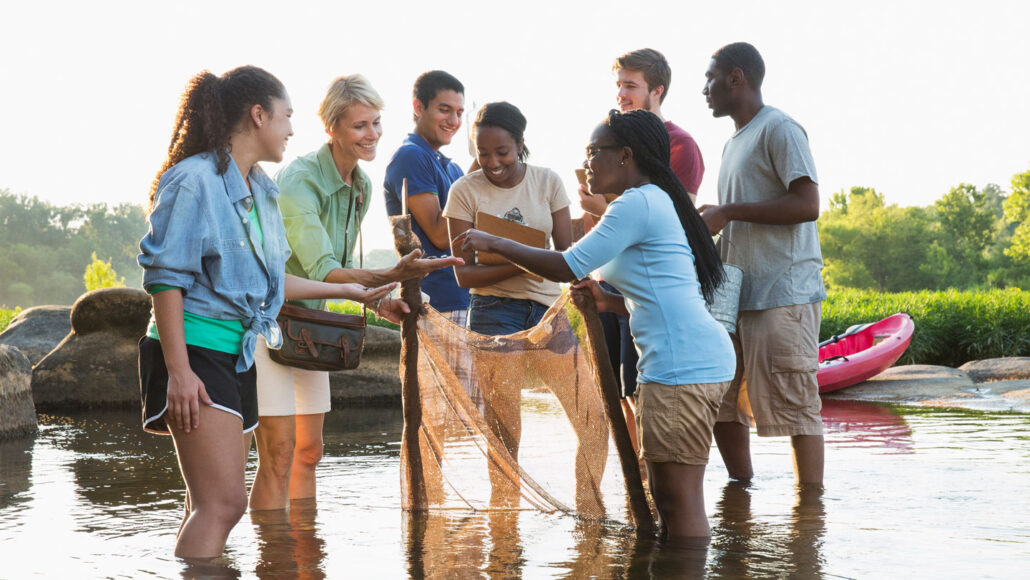Let’s learn about citizen science
Volunteers all over the world collect important data on the environment, health, space and more

Citizen scientists all over the world contribute to research by collecting and analyzing data.
Ariel Skelly/DigitalVision/Getty Images
Science may seem like a spectator sport. That is, it might feel like trained scientists do all the work while everyone else watches. But anyone can participate in science. Volunteers gather and analyze data for scientific studies all the time. These citizen scientists have advanced the research on climate, health, space and more. And you could be one of them!
Some citizen scientists collect data on the world around them — often using only their phones. The Globe at Night project, for instance, crowd-sources data on light pollution. NoiseTube is a similar effort to map noise pollution. Hikers, birders and other nature lovers share wildlife photos on iNaturalist. Those data contribute to the study of our planet’s biodiversity.
But not all citizen science takes place outdoors. There’s plenty that doesn’t require leaving your home. On Instant Wild, volunteers tag animals in photos taken by cameras out in the wild. Those labels help conservation efforts. And online gamers playing Foldit and Neureka contribute to health research.
Citizen science isn’t just a great way to learn about a new field and get inspired. Non-pros bring fresh ideas and perspectives to the scientific community. And some even make big discoveries. Citizen scientists were the first to spot mysterious “yellowballs” in telescope images, for instance. And they were also the first to identify a weird purple air glow called STEVE.
No matter what kind of science catches your fancy, there’s probably a citizen-science project for you. So, get out there and get your science on. Who knows? Your casual afternoon pastime may help lead to the next great discovery.

Educators and Parents, Sign Up for The Cheat Sheet
Weekly updates to help you use Science News Explores in the learning environment
Thank you for signing up!
There was a problem signing you up.
Want to know more? We’ve got some stories to get you started:
Kids make great citizen scientists Kids often make great citizen scientists because they tend to be curious and good at following precise directions. Sometimes they’re even better at these things than adults. (1/18/2018) Readability: 7.7
Photographing wildflowers and other ways you can help fight climate change Even nonscientists can take part in climate and conservation research. (4/11/2019) Readability: 8.4
Citizen scientists spy on camel crickets Scientists asked homeowners about these hopping critters and found there may be a new invader on the loose. (3/9/2016) Readability: 6.5
Explore more
Getting on the citizen science train
Stuck inside this winter? Try an at-home citizen science project (Science News)
The Milky Way’s ‘yellowballs’ are clusters of baby stars
Meet STEVE, the northern lights in mauve
Are coyotes moving into your neighborhood?
Using citizen science to find a new taste
Citizen scientists wanted to make an eclipse megamovie
Activities
Want to be a citizen scientist but not sure where to start? Check out SciStarter. The organization’s database of thousands of projects is searchable by location, topic and more. In honor of Citizen Science Month in April, SciStarter also has curated a list of featured projects. The lineup includes plenty of activities perfect for beginners. See, too, the calendar of citizen science events to be held across the country and online this April, from star parties to bug hunts.







